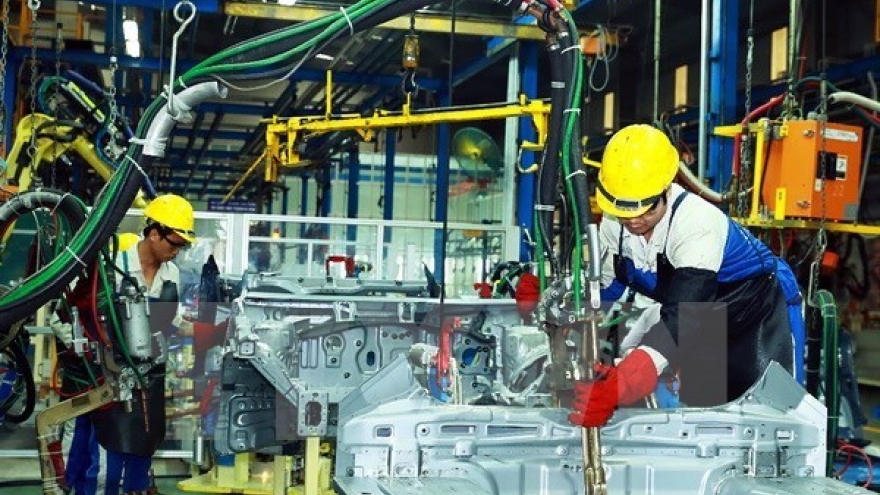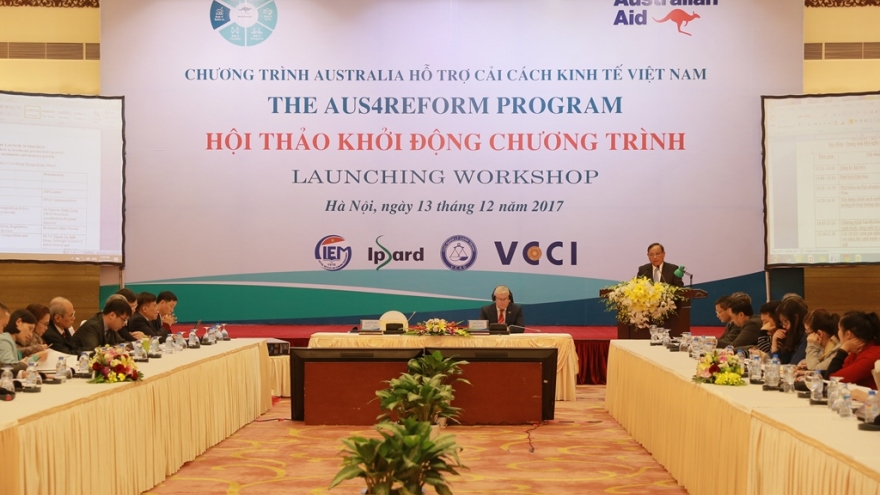Three key factors to increasing Vietnam's labour productivity
Increasing investment in training skilled employees, modernising technology and manufacturing lines, and improving the management capacity of CEOs are the three major factors to increasing labour productivity in Vietnam.
 |
| Three key factors contribute to increasing Vietnam’s labour productivity |
Vietnam’s labour productivity currently stands behind almost all countries in Southeast Asia, including Laos. In 2016, the average productivity of a Vietnamese employee reached $9,894 per person, equalling 7 per cent of Singapore, 17.6 per cent of Malaysia, and 36.5 per cent of Thailand. In 2017, the figure was $4,166 per person.
According to Nguyen Bich Lam, general director of the General Statistics Office of Vietnam, the major reason for the country’s low labour productivity compared to Southeast Asian countries is because Vietnam started from lower and has been going up from an agricultural country as well as backward economic structure.
However, the skill, acumen, as well as the intelligence of Vietnamese employees are not inferior to any countries in Southeast Asia, thus, if Vietnam had the same manufacturing conditions (the same starting point, modern manufacturing lines) as Singapore, Vietnam’s labour productivity could be even higher than that of Singapore.
In reality, the proportion of the three sectors of agriculture, forestry, and fisheries makes up 16.3 per cent of the Vietnamese economy, while the proportion in Thailand is 8 per cent, 9 per cent in Malaysia, 10 per cent in the Philippines, and 14 per cent in Indonesia. Especially, in Singapore, the industry, construction, and services sectors make up nearly 100 per cent.
In addition, as of the end of 2017, Vietnam had 21.6 million people working in the sectors of agriculture, forestry, and fisheries with the average productivity of VND35.5 million ($1,558) per person, equalling 38.1 per cent of the productivity reported in the industry, construction, and services sectors.
Along with the comparison in starting points, delegates also emphasised the importance of investing in human resources training as well as modernising the infrastructure and manufacturing lines to increase labour productivity.
Ha Thu Thanh, chairwoman and CEO of Deloitte Vietnam, said, “The skills of employees and modern technology play an important role in improving labour productivity. Because if employees are not trained methodically and professionally, they will work by instinct and not promote creativity. As a result, they cannot improve labour productivity. Besides, in reality, 70 per cent of equipment, machinery, and infrastructure in Vietnamese workshops are backward, which hinders productivity.”
The third factor plays an important role in increasing labour productivity is the managment capacity of CEOs.
According to Bang Huyn Woo, deputy general director of Samsung Vietnam, “Vietnamese employees’ productivity at Samsung Vietnam is equal to 99 per cent of Samsung employees in South Korea. In nature, the labour productivity of Vietnamese employees has the same potential as that of employees in other countries, thus, I believe that if they are trained methodically and managed by professional CEOs, their productivity will surely improve.”
Meanwhile, Vu Tien Loc, chairman of the Vietnam Chamber of Commerce and Industry (VCCI), emphasised that the combination of professional CEOs and high labour productivity would be the key indicator of economic development.
Nguyen Ngoc Thuy, president cum founder of Egroup Education Group JSC, Apax English JSC, and Apax English Corporation, said that with the population of approximately 100 million, 50 per cent of which are young people, Vietnam is an ideal investment destination for foreign investors.
Besides, the government has been making great efforts to increase labour productivity, including organising conferences and forums to discuss solutions as well as listen to the opinions of foreign and domestic experts and representatives of enterprises. Besides, the government needs to stimulate large-scale domestic groups, including Vingroup and VietJet, to pull up labour productivity at other domestic firms.
According to Bang Huyn Woo, Vietnam should determine the key economic industries and then focus on investing in human resources and equipment as well as technology to develop.



